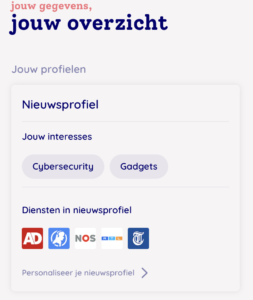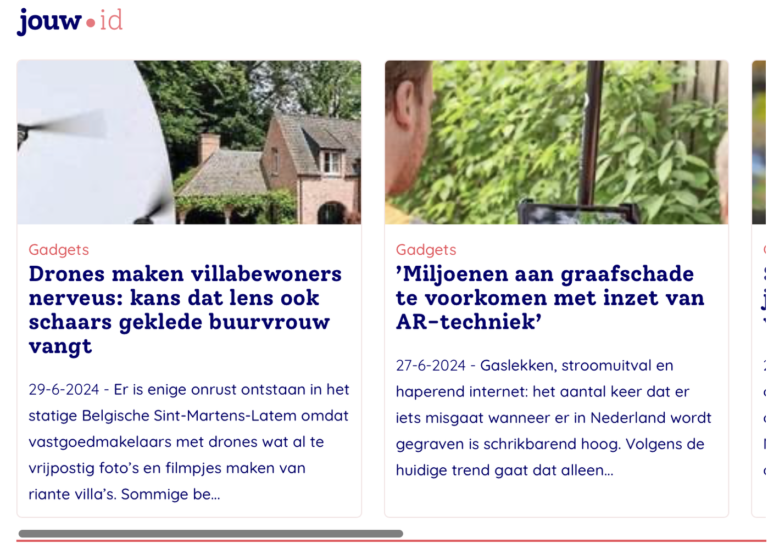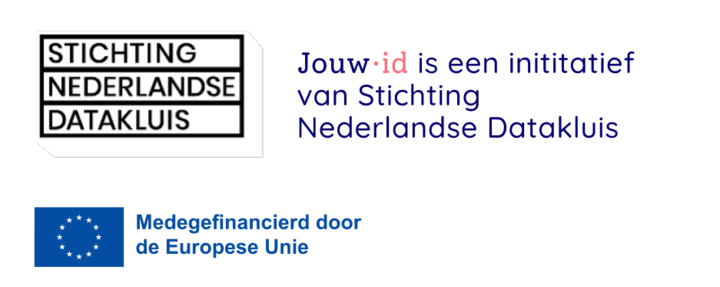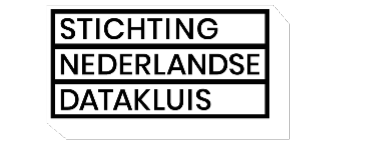After 6 months of hard work, the jouw•id team has delivered the MVP today, with 200 users currently testing our login-with-data vault in a closed environment. This is a significant milestone, as six months ago we only had a bold idea, and the first team members were gathering in our brand new office in the heart of Utrecht.
With the jouw•id login, you’ll soon be able to log in to all large local media platforms and store your personal data securely, and control it yourself. This means you’ll never have to deal with annoying cookie notifications again, and you’ll decide what to share, with whom, for what purpose, and for how long. This groundbreaking development is generating significant interest both domestically and internationally.
In this MVP testing round, the initial test group is providing feedback on the technical infrastructure, product, and proposition. This test phase is a crucial step for jouw•id in the development towards a live pilot later this year. We will keep you updated on all developments through these updates.
Unfortunately, we couldn’t admit everyone on the waiting list to the closed MVP. If you didn’t make it this time, don’t worry. Keep an eye on your email. After the summer, we will start phased live pilots, and you’ll receive a notification when you can create a jouw•id. Not on the list yet? Visit www.datakluis.nl and sign up!

Even if you’re not part of the select group testing this round, we still want to give you a glimpse of what jouw•id is at the moment. First and foremost, jouw•id is a login for all affiliated sites and apps. Create your login, and soon you’ll be able to access all participating media sites. In fact, one login will suffice, and you’ll be recognized anonymously across all affiliated sites. Jouw•id is thus a SSO (single sign-on) for all participating websites, transcending platforms, companies, and sectors. Think of it like Google, Facebook, or Apple logins but without secretly collecting all your data.
In the MVP of jouw•id, you can store your personal attributes and create an interest profile. All of this is stored in your own data vault. You take this data with you to the websites you visit, and you can also take it away when you leave. You decide which data to make accessible to the website you visit. Importantly, while your interests are visible, you remain anonymous! Your email address is not disclosed to the website you visit. The website only sees an anonymous user with certain preferences. Each website you visit receives a different “pseudo-ID,” a fictitious login name, preventing you from being tracked across different websites.

To demonstrate what you can do with data from a personal data pod, we have created an application about personalized news. The interests you store in your pod are used on news websites to offer personal news in a dedicated box fed by current news feeds matched towards your interests. If you’re interested in cycling news, you’ll get the latest news about the Tour, but if you prefer hockey, you’ll find the ProLeague results from the past weekend in your news box.
To deliver this “Proof of Concept,” we used the RSS feeds of Dutch news outlets AD and Telegraaf. In a “data cage,” we compare the articles from the feeds with the interests in your data pod and make matches. This recommendation engine is actually not part of our product, but for a good MVP experience, it had to work well. The last bits of work over the past few weeks focused mainly on improving these recommendations. The jouw•id product and the data pod have been working smoothly for a while!
The beauty of jouw•id is that you can change your interests at any time. You can adjust your personal attributes or interests for your general profile and also set which interests to use per platform. Additionally, you can toggle the setting for each website: can the website use this data to offer you personalized content? Changes are processed immediately, and in our test version, you can see that you are immediately offered different articles.

We are ‘Rewilding’ the Internet
The article “We Need to Rewild the Internet” by Maria Farrell and Robin Berjon argues that the internet has turned into a fragile, dominant monoculture, similar to poorly managed forests. The authors advocate for ‘rewilding’ the internet by applying ecological principles to create a more resilient, diverse, and decentralized online ecosystem. They highlight the dangers of current monopolistic practices and the need for open, interoperable systems that will foster innovation and sustainability. ‘Rewilding’ involves promoting diversity and restoring autonomous processes to rebuild complexity and resilience. A lengthy essay but well worth the read.
jouw•ai
We already knew that jouw•id is an important and groundbreaking product. It’s becoming increasingly clear that your personal data shouldn’t be wandering around the internet with parties that consider your data as ‘first party.’ With the rapid development of AI, data ownership, -accessibility, and source transparency are becoming more important.
All the content, photos, and personal data you leave on the internet can be used to develop and train AI tools and rocketfuel the grow of new dominant platforms. This means your personal data is increasingly used, edited, and spread without your control. Jouw•id aims to give you that control and ownership back so that you can decide which personal assistants have access to your personal data and which do not.

Europe Leading the way
Last month, Europe approved the world’s first comprehensive law on artificial intelligence, the AI regulation. AI systems must now meet strict requirements. This process is necessary but still evolving. The outlines of the new playing field are gradually becoming clear with European rules on ethics and the decentralization of (data) power. With jouw•id, we are preparing for the AI era, where everyone will have a personal AI assistant. These assistants will need access to your personal data to serve you as best as possible. That data will either be in the hands of (large, American or Chinese) AI providers or in your own hands. With jouw•id, you can decide which AI has access to your personal data to help you. This way, we prevent new and even greater concentrations of power on the internet.

